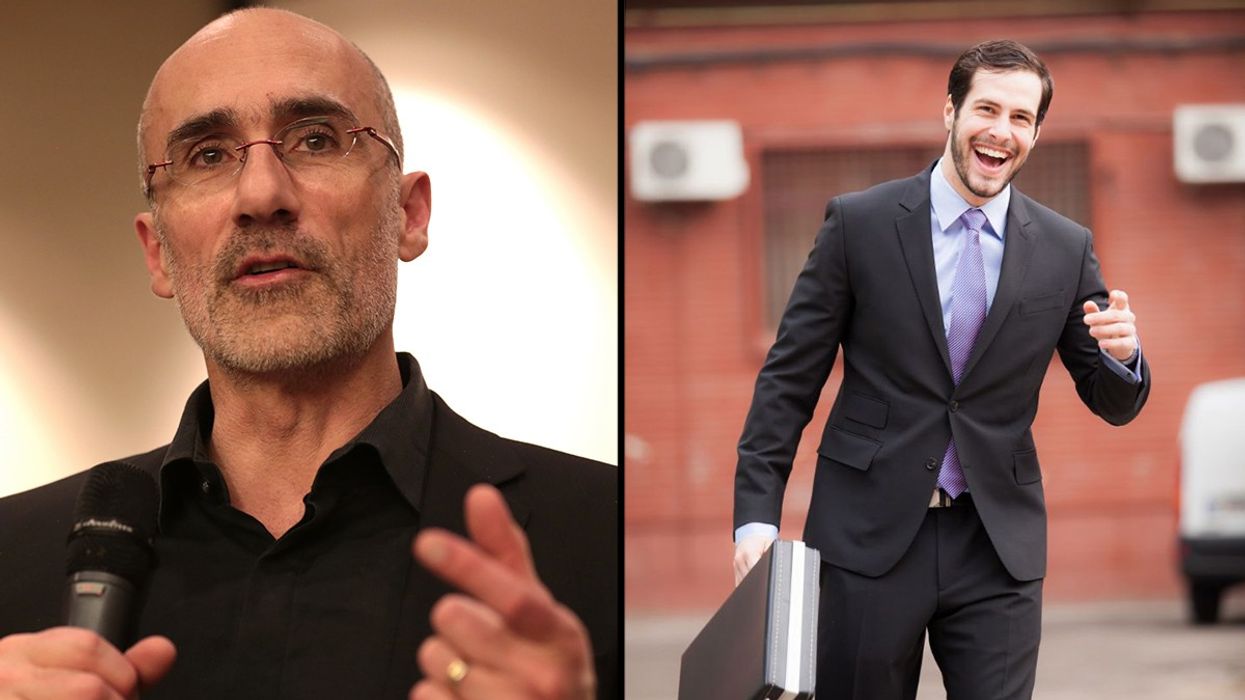When you think of the United Nations, what words come to mind? Innovative, nimble, and tech-friendly probably aren’t at the top of the list. And that suggests that it may be time for the U.N. to overhaul its brand.
Everyone knows the U.N. as the place where global ambassadors hash out peace deals and climate accords, but the organization is also meant to be an ambassador of a world view in which poverty anywhere on earth is everyone’s problem and peace is everyone’s responsibility—a set of values that is dropping down many Americans' priority list as we find our own nation coping with tough times.
Without broader public support for the ideas behind the U.N., it’s unlikely the U.S. government or the (relatively speaking) deep-pocketed American public will step up to help the causes the U.N. is pushing. So its affiliated NGO, the U.N. Foundation, is leading by example with a plan to keep up with the times. The UNF has recruited a mix of young tech, media, and entertainment business leaders to turn their modern talents and savvy business minds to perennial problems of global poverty and international development.
A dozen years ago, billionaire Ted Turner decided the U.S. wasn’t shelling out its fair share to support the U.N.'s global peace and anti-poverty work. So Turner pledged $1 billion—about a third of his fortune from CNN and Time Warner—to U.N. causes, picking up what he saw as his nation’s slack. Turner’s money seeded the U.N. Foundation to support of the broader U.N.
Now, the foundation is getting a jolt of innovative entrepreneurial thinking from the next generation of aspiring billionaires. Nine young business leaders have been tapped to join the Global Entrepreneurs Council to help shepherd the organization—and by example, the U.N. itself—more smoothly into the age of digital do-gooding. The council includes the publisher of Variety, a movie producer, social media experts, and serial tech entrepreneurs.
When they met for their first full council meeting in New York earlier this month, council members invited GOOD to observe and join in the discussion about how young blood can help the foundation stay fresh. “We literally have a blank slate,"on branding outreach said Sergio Fernandez de Cordova an ad executive at FUEL media. While some U.N. agencies like Unicef—the U.N.'s children's fund—have had marketing wins with the general public including the use of mobile apps, overall, he says, the U.N. and the UNF are "just barely scratching the surface” when it comes to building a brand that gets the general public donating and volunteering to help U.N. causes.
It may not seem important for the U.N. Foundation to have high-caliber consultants advising senior leaders on where to stick the “tweet this” button on a new website, but that’s just one example of a how youth can help an aging organization—the average age of the U.N. Foundation’s board members is 70, while the GEC’s average age is 35. Even media visionary septuagenarians need a touch of help in rolling out a brand message on an iPad.
Fernandez tapped his own company and his media contacts to deliver the UNF’s largest advertising campaign ever, reaching millions of Americans via Times Square billboards, taxi cab ads, direct mail, and other outlets to spread the UNF campaign messages, like explaining how $10 can save a life by subsidizing a mosquito net through the Nothing But Nets campaign. These spots delivered more than one billion impressions during the spring and early summer of this year and traffic to the UNF website rose 30 percent during the campaign compared to the year prior. Media has always been a youth driven business, even if it isn't youth-owned.
“We’re sharing some of our knowledge of what’s coming 12 to 18 months down the line in technology to help this U.N. Foundation to hopefully stay on top of the trends,” says Ryan Allis, founder of email marketing firm iContact and a member of the GEC who consulted on the organization’s website.
Aaron Sherinian, vice president at the U.N. Foundation, credits these young leaders with pushing the U.N. Foundation and the U.N. itself to leap into the digital world more fully, helping the organizations build their first mobile app as a way to solicit donations and spread awareness on new platforms. Launched in September around the time of the U.N. General Assembly’s annual meeting, the app helps concerned citizens check in on the global fight for clean water, polio eradication and other U.N. campaigns with a few easy taps. The platform includes a mobile and text outreach campaign and will eventually integrate game functionality for giving and fundraising. Now, the GEC is preparing to raise funds for malaria prevention from a new target audience: gadget geeks and technology makers at the upcoming Consumer Electronics Show.
“Having friends like these makes all the difference in getting Americans excited about supporting the life-saving work of the U.N.,” Sherinian says.
Image from U.N. Foundation PSA for Nothing But Nets campaign.















 Otis knew before they did.
Otis knew before they did.